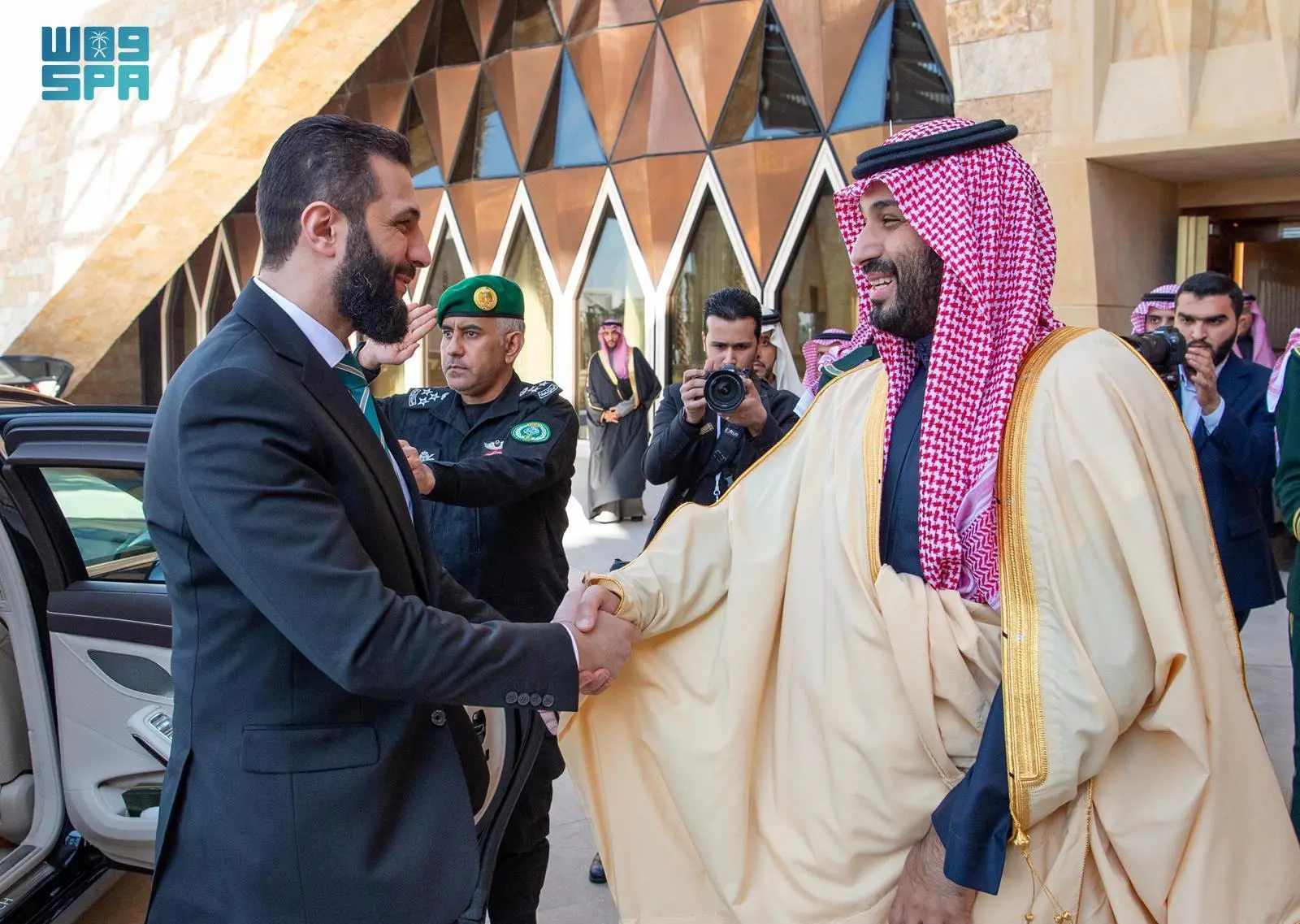Following a visit to Syria by Saudi Foreign Minister Prince Faisal bin Farhan bin Abdullah Al-Saud in late January, Syria’s interim president Ahmed al-Sharaa made his first international visit one to Saudi Arabia to meet with Crown Prince Mohammed bin Salman.
Syria’s foreign minister, Asaad al-Shaibani, also traveled to Saudi Arabia last month and in further evidence of Syria’s keen interest in coming closer to Arab Gulf states, this past week in Syria, al-Sharaa received Qatar’s Emir Sheikh Tamim bin Hamed Al-Thani.
Al-Sharaa’s choice to visit Saudi Arabia first is widely seen as a signal of Syria’s interest in moving away from ties with Iran.
Al Jazeera’s Osama Bin Javaid commented that al-Sharaa’s visit to Riyadh is to “make sure that Saudi Arabia knows and realises the importance that this new Syria puts it under,” and that this visit represents a “seismic shift in the country’s alignment and future relations” away from Iran and Russia.
Although Ahmad al-Sharaa was once aligned with al-Qaida and was known by the nom de guerre Abu Mohammed Al-Golani, he and his foreign minister, al-Shaibani, traveled on a Saudi jet, with a Saudi flag visible on the table behind them.
Following his meeting with Crown Prince Mohammed bin Salman, al-Sharaa posted on Telegram that, “we held a long meeting during which we felt and heard a genuine desire to support Syria in building its future.” The official Saudi Press Agency, said that MBS and al-Sharaa discussed “ways to support the security and stability of sisterly Syria,” as well as “ways to strengthen bilateral relations.”
In a December interview with Al-Arabiya, al-Sharaa stated that Saudi Arabia would “certainly play an important role” in Syria’s future, highlighting a “great opportunity for investment.” Adding that he was born in Saudi Arabia, where his father worked, and that he had spent the first seven years of his life in the kingdom.
Syria is eager to get Gulf support in the reconstruction of its economy as well as relief from sanctions that date to 1979, when the United States labelled Syria a “state sponsor of terrorism.” These were significantly expanded by the United States and others when al-Assad cracked down on anti-government protests in 2011 and sparked a civil war.
There is also the issue of ongoing challenges from the Islamic State and other extremists groups in Syria. On Saturday, a car bomb was exploded in Manbij killing four and wounding nine.
The meeting was attended by Foreign Minister Prince Faisal bin Farhan bin Abdullah, Minister of State, Member of the Cabinet, and National Security Advisor Dr. Musaed bin Mohammed Al-Aiban, Minister of State and Cabinet Member Mohammed bin Abdulmalik Al Al-Sheikh, President of General Intelligence Khalid bin Ali Al-Humaidan, Royal Court Advisor Khalid bin Farid Hadrawi, and Saudi Ambassador to Syria Dr. Faisal Al-Majfel.
On the Syrian side, the meeting was attended by Foreign and Expatriates Minister Asaad al-Shaibani, Director of the President’s Private Office Abdulrahman Salama, and a number of officials.









